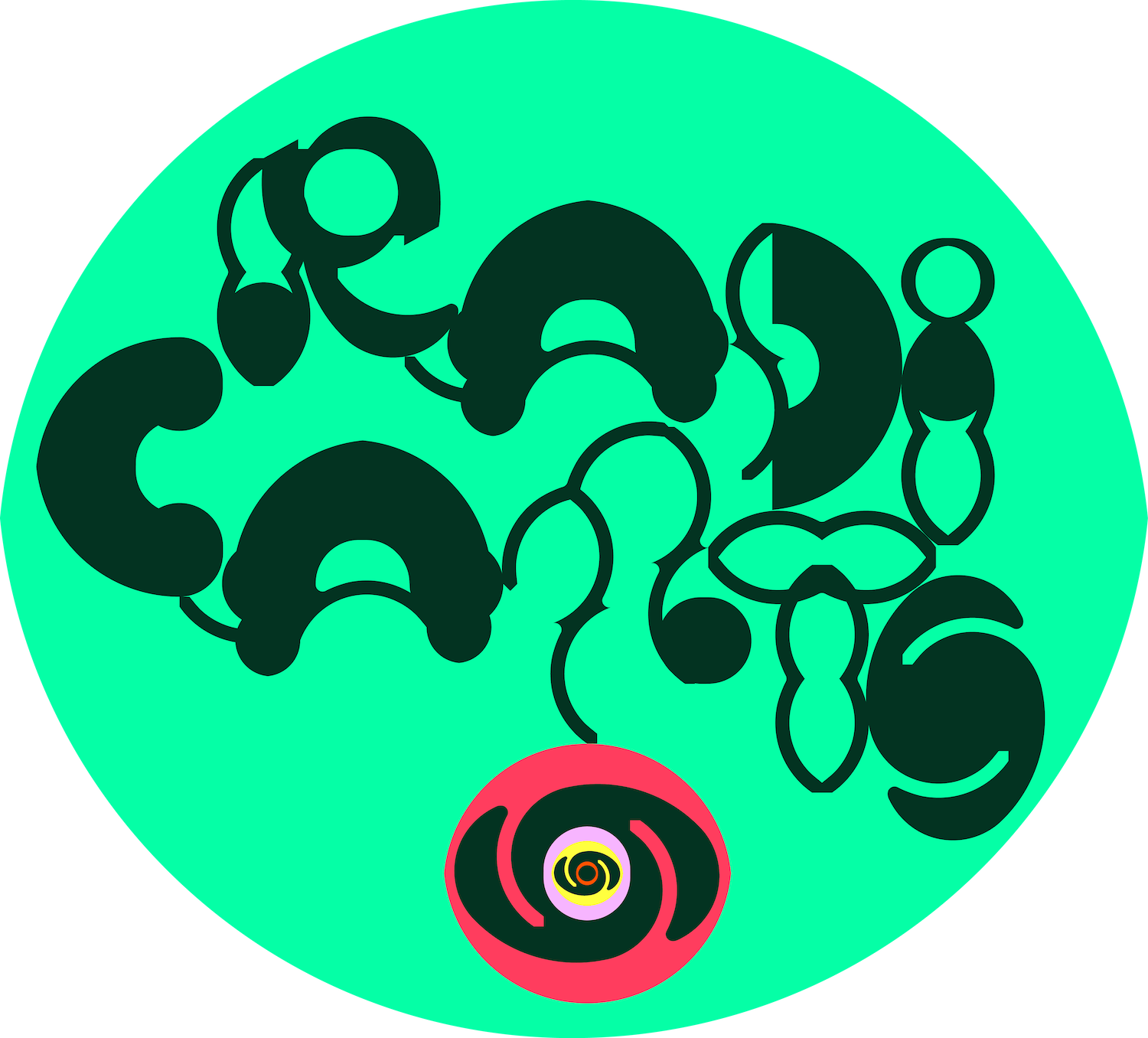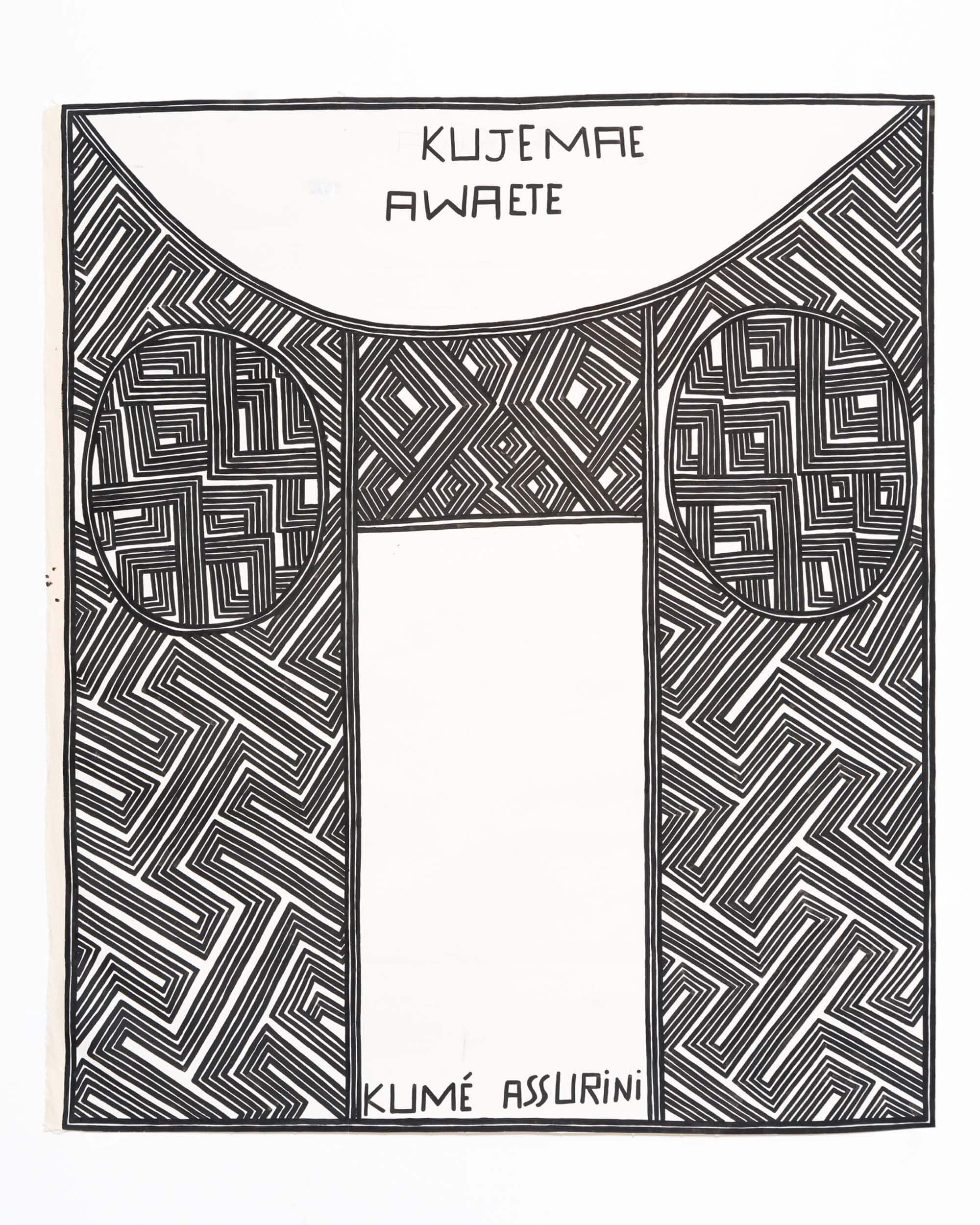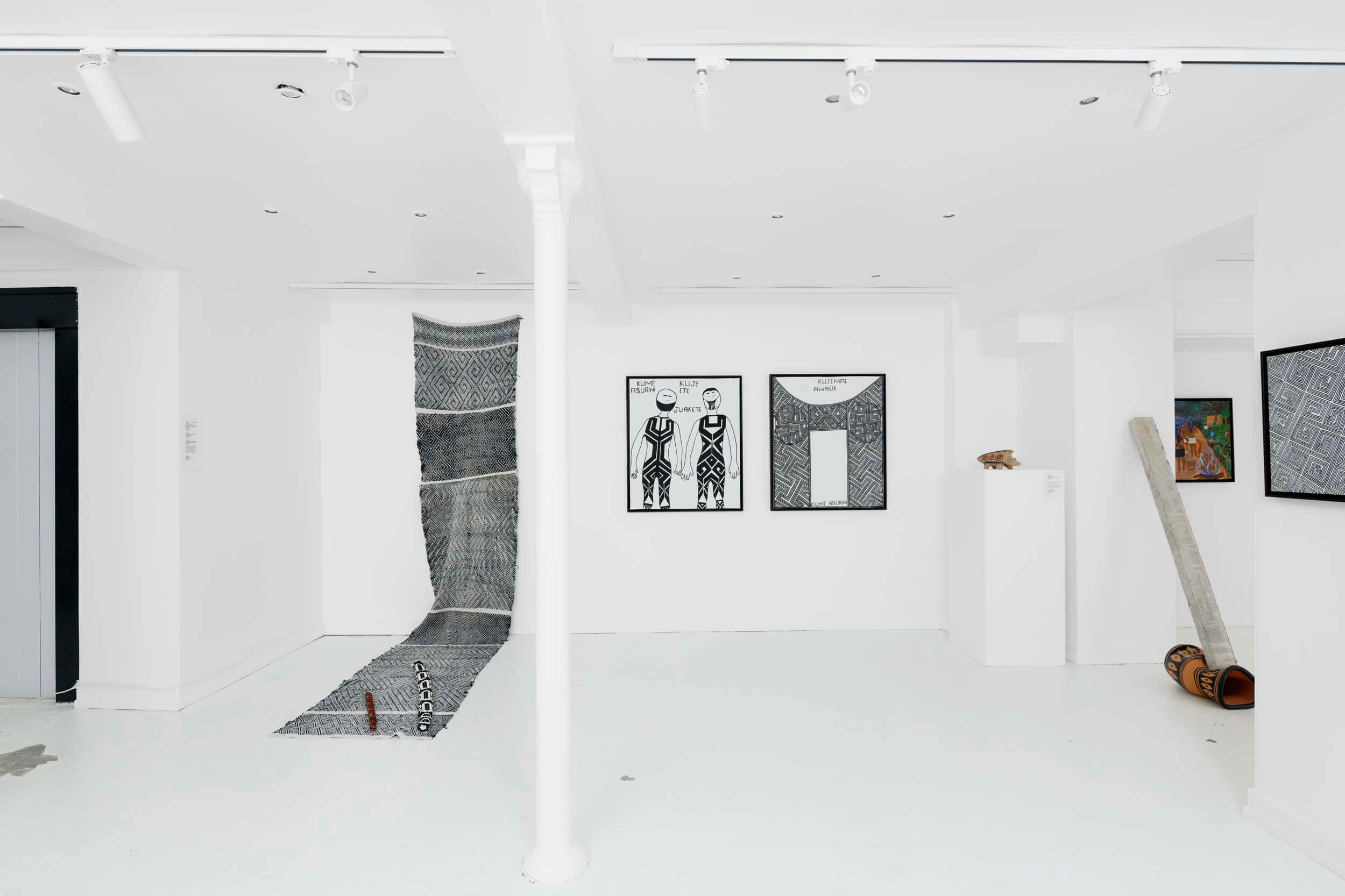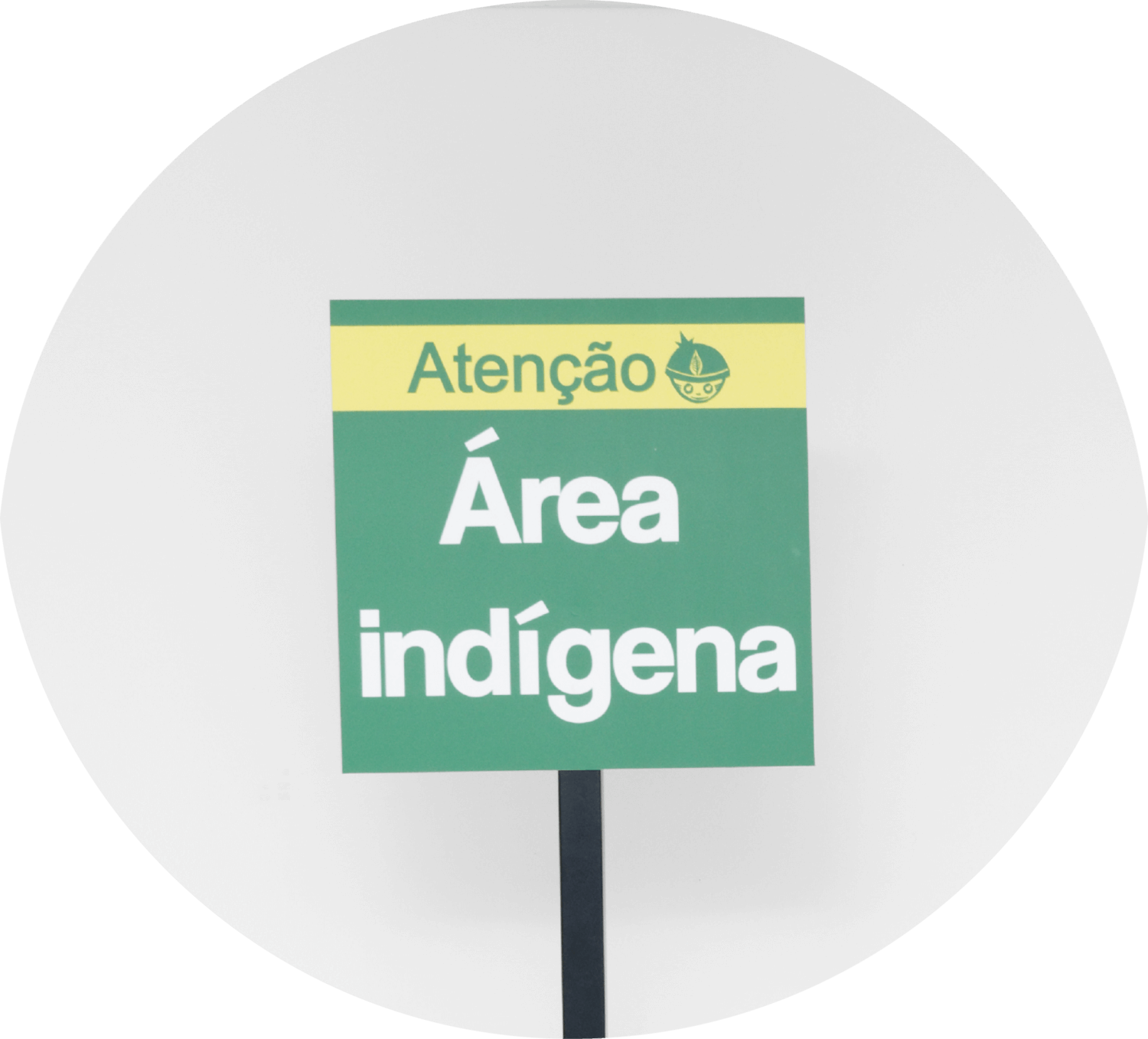Fabric paint on canvas, 100 x 85 cm
Courtesy of the artist
Kume Assurini is a painter, weaver, ceramist, and mother of four children. She was born during a period of traumatic change for her people, the Awaete, during what amounts to an ethnocide against the Indigenous peoples of Brazil. Despite growing up in a traditional family, it was her mother-in-law that awakened in her the importance of strengthening and learning their ancestral culture, whose practices and knowledge must be passed from generation to generation. In this exhibition, the artist, in partnership with the cultural producer and designer Carla Romano, seeks to look beyond the reproduction on canvas of graphic patterns that were once corporal, deepening the theme “Body” to enter further into layers of interpretation, signs and meaning, to consider the past, present and future of the sacred geometry of connection with the spirits of the Awaete people.
“Awaete. People of Truth. This is how our people call themselves. With only 48 years of contact, we, the Assurini of the Xingu, as we are called, carry a history of resistance and struggle along with the profound marks caused by the impact of contact with non-indigenous civilization and its development. Located in the Middle Xingu, founded by priests in the year 1972, when the Trans-Amazonian Highway was inaugurated, the following years were marked by poisonings during the dictatorship, when we were reduced to 52 Indigenous people in the 1980s. Subsequently, the harassment by academic researchers, government, loggers, miners, businessmen and evangelicals only worsened with the construction of the Belo Monte hydroelectric dam and the Canadian mining company Belo Sun.
Currently, our people and our territory, approved and demarcated, which we share with isolated Indigenous peoples, continue to suffer from the harassment already mentioned and invasive illegal settlements. Today, with 278 people in the most burned territory in the world, more than ever we need, for our physical, emotional, spiritual and cultural survival, to build another dialogue, decolonized, with Brazilian society, because we must safeguard the knowledge and territories that are fundamental for us and for the world.” – Kume Assurini








